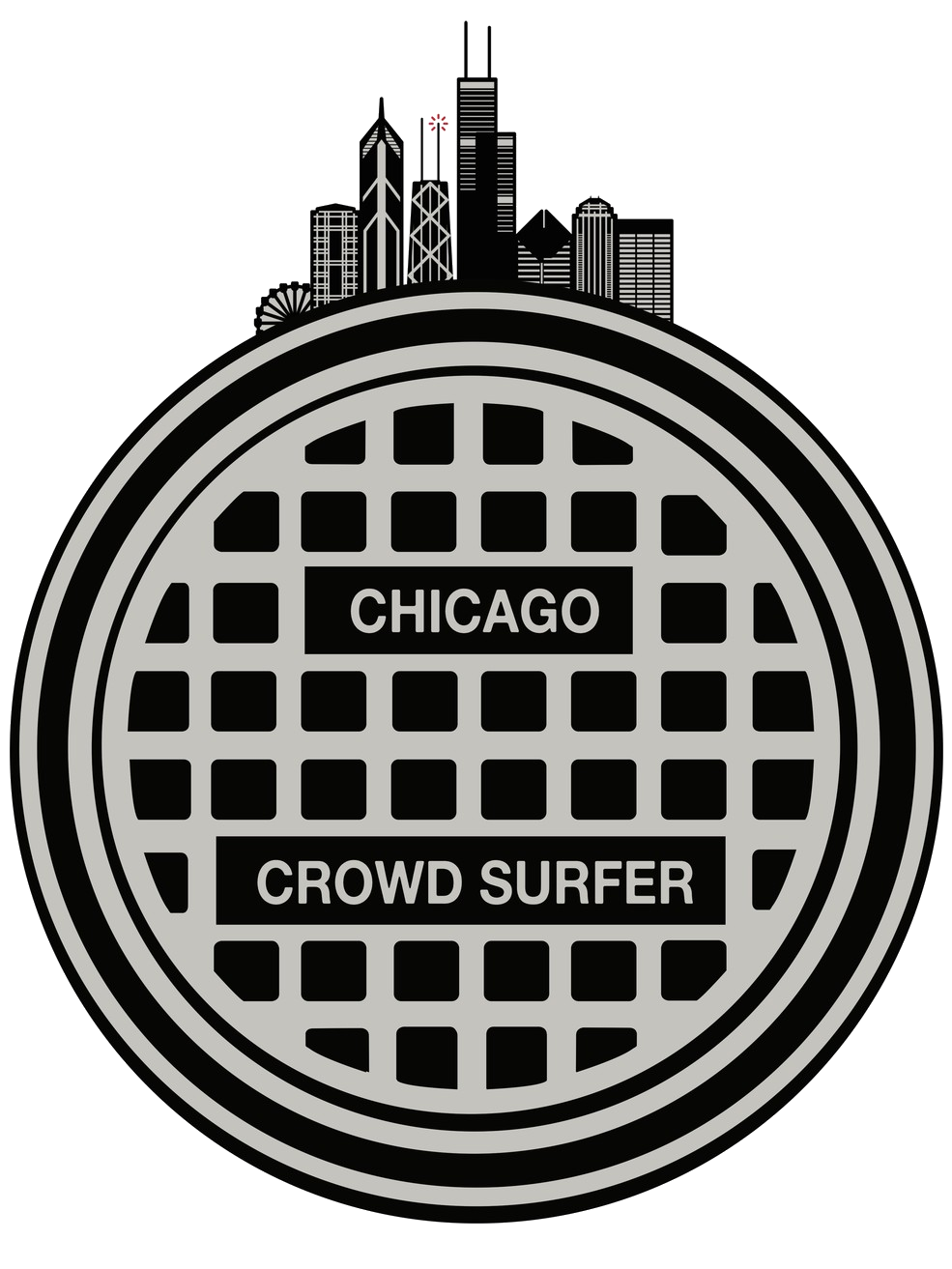Djunah
📷 : Dave Rentauskas
The power of Djunah must be seen to be believed. A master of multitasking, fronter/songwriter Donna Diane is not only a gifted vocalist who shines with her deep bellow, but a talented guitarist who just so happens to play a bass organ with her feet, while partner-in-crime Nick Smalkowski attacks his kit like there’s no tomorrow. It’s a recipe that blends into a chaotic, melodic noise machine that packs a fistful of punches. We caught up with Donna after their killer Record Release Party at Empty Bottle for the excellent debut Ex Voto, and she answered a few of our burning questions with eloquent and powerful thoughts.
-Kyle Land
DD: Donna Diane
First things first, how did you and Nick meet and what was the genesis of Djunah?
DD: Nick was in Fake Limbs and I was in Beat Drun Juel, so we played together a bunch and were big fans of each other’s bands. BDJ broke up around the same time that Fake Limbs went on hiatus, so it was kind of natural for both of us to join up. I had already cobbled together the bass organ to use for a solo project and had a backlog of songs I’d been writing for BDJ, so we were able to hit the ground running.
Where does the name Djunah come from?
DD: Djuna Barnes is one of my favorite writers, so I’ve always loved that name. There was a period of time when I thought I wanted to have a kid, and I was going to name her Djuna. (My mom’s name is Diana, I’m Donna, so it’s kind of a continuation of that whole alliterative pattern.) I couldn’t get pregnant, though, so I actually started playing music again to distract myself from how hard that was. Then I became engrossed in songwriting, so starting a family just kind of fell to the wayside. In a way, it’s fitting to call the band Djunah; it’s kind of a daughter to me.
Why keep it to a duo? There are plenty of bass players out there. Why not expand into a trio instead of essentially playing two instruments yourself, while singing as well?
DD: I have hundreds of answers to this question! Part of it is wanting to give people something they haven’t seen before. Part of it is it’s very satisfying to me to command that much of the frequency spectrum. And part of it is what it represents to me—it’s not so different from what most women I know, especially mothers, do every single day. They do all the jobs at the same time, and they don’t complain about it. They don’t ask for help. They just do it. I get approached by guys a lot after shows offering play bass for me. I’ve never had a woman approach me with the same offer, and I doubt I ever will. I think women intuitively recognize what I’m doing and what it means.
After Beat Drun Juel broke up how long did it take before you were back writing, or did you ever really stop?
DD: I never really stopped. I actually started writing many of the songs on the album before Beat Drun Juel broke up, so they were all in various states of done-ness by the time Djunah started. For me, songwriting is a continuous process that just happens to end whenever you enter the studio.
Speaking of writing, what comes first the lyrics or the riff?
DD: Most often the riffs come first, though I think when the lyrics come first it makes for better songwriting. “Hand Videos,” “Kiddo,” and “Cradle” are examples of the lyrics-first approach. My goal for the next album is to do lyrics first for everything—without sacrificing the big riffs.
Djunah falls squarely between noise and metal. Where do you see the demarcation line or is there a need of genre anymore?
DD: Personally, I can’t wait for the dawn of a post-genre world! Genre may be useful for sorting through the massive amount of music online, but I think it’s to the detriment of bands trying to do something different. Being in between is difficult. There’s no set fanbase for what you do. Nobody is pushing your style of music. You have to make all that happen for yourself. There’s still a lot of good that can come out of being at a crossroads between different scenes, though. For instance, we’re not a hardcore band, but some of my favorite people to play for are hardcore kids. I think they get the emotion and passion behind the music. To me, that’s what supersedes genre.
